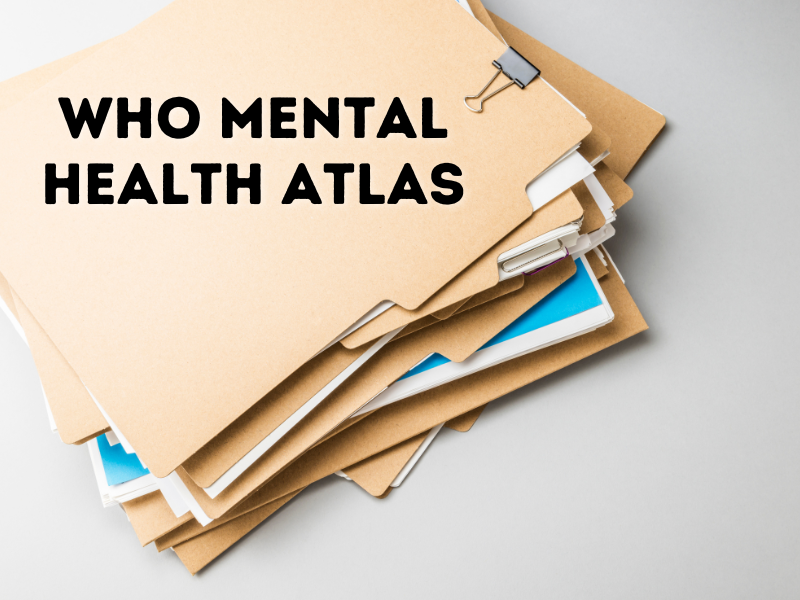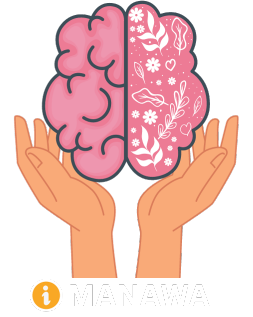
Introduction
Mental health is an essential aspect of overall well-being, and its significance is recognized globally. The World Health Organization (WHO) plays a vital role in monitoring and addressing mental health challenges worldwide. The WHO Mental Health Atlas is a comprehensive resource that provides insights into the current state of mental health, statistics, and services across different countries. This article serves as a detailed guide to the who mental health atlas, offering a wealth of information on global mental health initiatives.

Who Mental Health Atlas: Providing a Snapshot of Global Mental Health
The who mental health atlas is a valuable tool that helps researchers, policymakers, and healthcare professionals understand the global burden of mental health disorders and the provision of mental health services. It provides a comprehensive overview of mental health resources, policies, and strategies implemented by different countries. By analyzing the data and trends presented in the atlas, stakeholders can make informed decisions to improve mental health services and support.

What is the WHO Mental Health Atlas?
The WHO Mental Health Atlas is a compendium of mental health information collected from countries around the world. It aims to provide a comprehensive overview of mental health systems, services, and resources available in different regions. The atlas collects data on various aspects related to mental health, including governance, financing, workforce, service availability, medications, and treatment guidelines.
The Importance of the WHO Mental Health Atlas
The WHO Mental Health Atlas plays a crucial role in monitoring the progress and identifying gaps in mental health services globally. By analyzing and comparing data from different countries, policymakers and healthcare professionals can gain insights into successful strategies and areas needing improvement. The atlas also helps raise awareness about mental health challenges, reducing stigma, and advocating for increased investments in mental health services.
Global Mental Health – Key Statistics and Trends
Understanding the current status of mental health worldwide is essential to address the growing burden of mental health disorders. The who mental health atlas provides valuable statistics and trends that shed light on the global mental health landscape.

Prevalence of Mental Health Disorders
According to the who mental health atlas, mental health disorders affect millions of people worldwide. Approximately one in four individuals will experience a mental health condition at some point in their lives. Depression and anxiety disorders are among the most common mental health disorders globally, impacting individuals of all ages.
Mental Health Services and Accessibility
Unfortunately, mental health services often face significant challenges in terms of accessibility and availability. The who mental health atlas highlights the disparities in mental health services globally, with low-income countries facing greater difficulties. Inadequate funding, workforce shortages, and limited infrastructure contribute to the lack of access to quality mental health care.
Efforts to Improve Mental Health Services
Recognizing the importance of mental health, many countries have implemented interventions and initiatives to improve mental health services. The WHO, together with governments and non-profit organizations, advocates for increased investments in mental health and the integration of mental health into primary healthcare systems. The who mental health atlas showcases these efforts and provides a platform for sharing successful strategies and best practices.
Promoting Mental Health: Interventions and Initiatives
Promoting mental health and well-being is a critical component of reducing the global burden of mental health disorders. The who mental health atlas highlights the interventions and initiatives undertaken by countries to address mental health challenges and improve overall well-being.
Integration of Mental Health into Primary Healthcare
Recognizing the need for accessible and holistic care, many countries have focused on integrating mental health services into primary healthcare settings. This approach ensures that individuals can access mental health support alongside general medical care. By integrating mental health services into primary healthcare, countries can reach a larger population and provide earlier intervention and support.
Mental Health Promotion and Prevention Programs
Prevention is a key aspect of mental health, and the who mental health atlas showcases various programs aimed at promoting mental well-being and preventing mental health disorders. These programs often focus on raising awareness, reducing stigma, and equipping individuals with coping mechanisms and positive mental health practices.
Community-Based Mental Health Services
Community-based mental health services are crucial in providing support to individuals with mental health conditions. Through the who mental health atlas, countries can learn from successful community-based initiatives and replicate them in their own contexts. These services prioritize community engagement, empower individuals, and ensure access to localized, culturally sensitive care.
Frequently Asked Questions
Q: How often is the WHO Mental Health Atlas updated?
The WHO Mental Health Atlas is typically updated every few years to ensure that the data and information it provides remain current and relevant. However, it is important to check the specific edition date and any subsequent updates or reports issued by the WHO to access the most recent information.
Q: Can the WHO Mental Health Atlas be accessed online?
Yes, the WHO Mental Health Atlas is available online through the official WHO website. It can be accessed for free, allowing researchers, policymakers, and healthcare professionals to delve into the data, statistics, and resources provided in the atlas.
Q: How can the WHO Mental Health Atlas be used to advocate for improved mental health services?
The WHO Mental Health Atlas serves as a valuable advocacy tool. Its comprehensive data and statistics can be used to highlight the gaps in mental health services and advocate for increased investments and policy changes. By presenting evidence-based insights, stakeholders can make a compelling case for better mental health care.
Q: How can individuals contribute to improving mental health globally?
Individuals can contribute to improving mental health globally by raising awareness, reducing stigma, and supporting organizations and initiatives focused on mental health. By engaging in conversations, promoting self-care, and reaching out to others, individuals can create a supportive environment that promotes mental well-being for all.
Conclusion
The who mental health atlas provides a comprehensive and detailed overview of mental health worldwide. It serves as a valuable resource for understanding the current state of mental health services, statistics, and interventions in different countries. By analyzing the data presented in the atlas, stakeholders can identify areas needing improvement and advocate for better mental health services and support. As mental health continues to gain recognition globally, the who mental health atlas plays a vital role in facilitating knowledge sharing and driving positive change.
